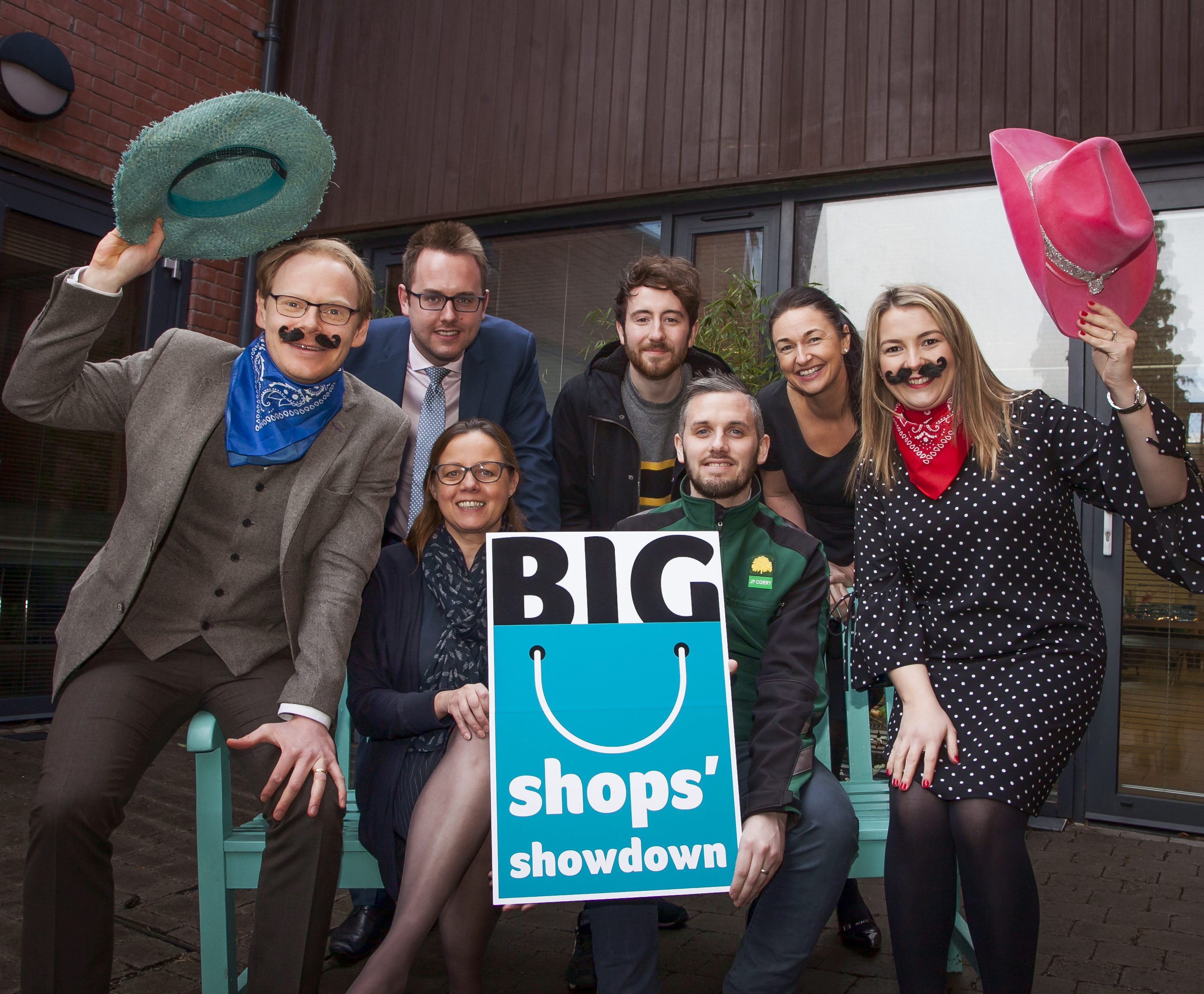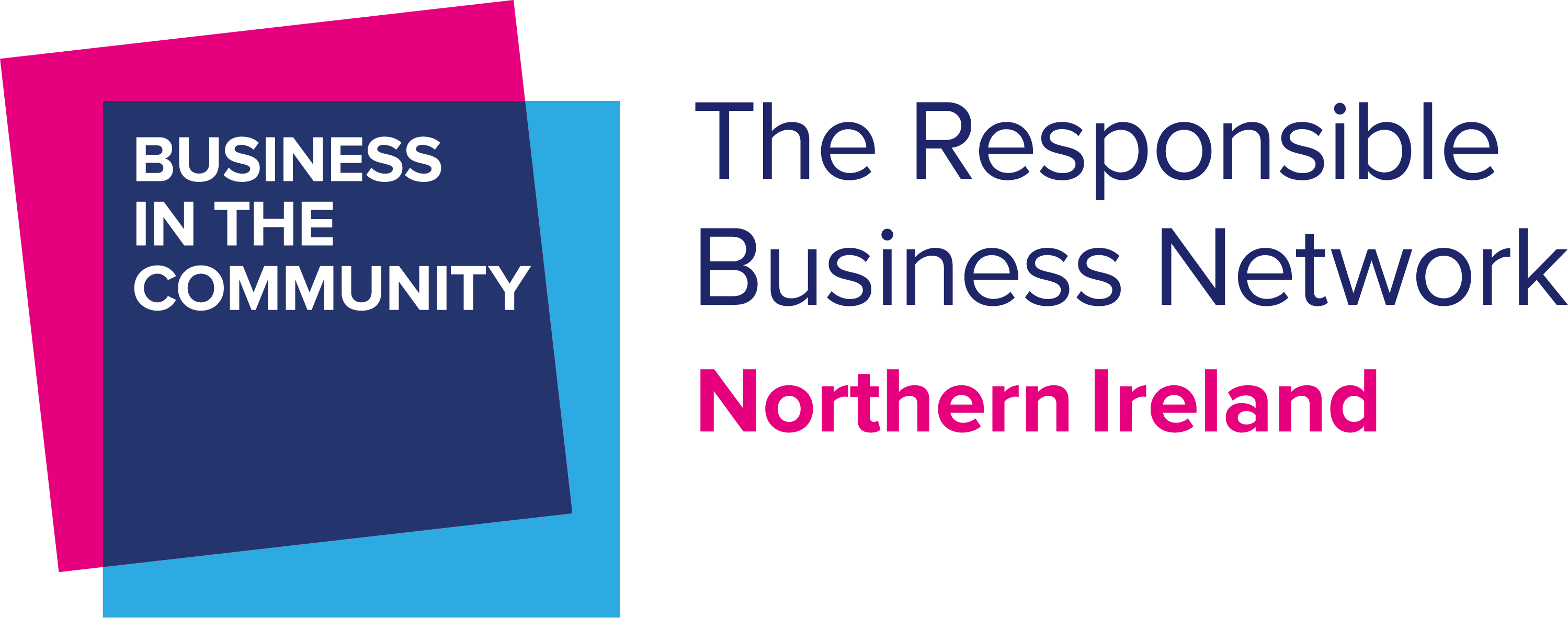The business case for volunteering
Today (27 April) is take-over day for the Big Shops’ Showdown, a volunteer challenge run in partnership with Cancer Focus which utilises the business acumen, fundraising guile and goodwill of businesses. The aim of the challenge is for companies to compete against each other in the running of charity shops and, in doing so, raise funds for the charity.

Today (27 April) is take-over day for the Big Shops’ Showdown, a volunteer challenge run in partnership with Cancer Focus which utilises the business acumen, fundraising guile and goodwill of businesses. The aim of the challenge is for companies to compete against each other in the running of charity shops and, in doing so, raise funds for the charity.
Scratch below the surface, though, and the benefits for the charity and company go far beyond this.
For Cancer Focus, it’s an opportunity to engage with businesses; developing meaningful and (hopefully) long-standing corporate partnerships that avail of professional skills they might not otherwise have access to.
There are multiple benefits for the company:
- The challenge develops stronger customer relations by providing a visible presence in their local community
- Delivers cost-effective development of staff skills
- Provides effective team building
- Improves employee wellbeing through meaningful engagement
Indeed, these benefits are at the heart of Employer Supported Volunteering. They represent a strategic form of community engagement which ensures that the benefits are mutually felt both by the charity and the business alike.
At Business in the Community, we have a broad suite of community-based programmes which engage businesses in volunteering. These involve activities ranging from a team of staff going out to do a beach clean at Murlough Bay to a volunteer teaching someone how to surf the web. What ties the activities together is their meeting of a social need – whether it’s helping to improve the environmental landscape or introducing someone to the basic digital skills required to start their journey to employment – by providing a valuable resource to an increasingly challenged charity sector.
What they also do is provide a valuable resource for businesses that is increasingly changing the dynamic of Employer Supported Volunteering. The ‘savvier’ business has woken up to this and volunteering is now embedded into organisations as a key staff development tool, method of community engagement, and an avenue for developing stronger customer relations.
To look at this further it’s worth looking at the company benefits that I outlined at the start of the article (associated with the Big Shops’ Showdown) and examining how each of these provide a strong business case for businesses to be strategically committed to volunteering.
Developing stronger customer relations
Accenture’s 2016 report (2020 Vision for Employer Supported Volunteering) highlighted that 17% of volunteers reported that volunteering had helped them to develop stronger customer relations. Undoubtedly this can be because of the positive press and PR generated resulting from volunteering activities but in Northern Ireland I think it owes much of this to word of mouth and the visibility that comes from having volunteers out within local communities.
Volunteering in the local communities in which they operate, provides business with a direct avenue of engagement with customers (and staff) in their own back yards.
Development of staff skills
From the feedback we receive from businesses we work with there is an overwhelming case that volunteering helps to develop people and, as a result, fundamentally strengthens the business.
Volunteering often puts volunteers in environments where they are dealing with situations and people that they might otherwise not be exposed to in their day-to-day roles, taking them out of their comfort zones. Indeed, Accenture’s ‘2020 Vision for ESV’ found that 76% of volunteers reported that they had developed core skills as a result of their volunteering activities.
Soft skills such as communication, problem solving and working as part of a team are often highlighted as areas where volunteers feel the experience has been beneficial to them. These are all skills which volunteers can take back into the workplace and use in many of their day-to-day activities.
Challenges such as the Big Shops Showdown (as well as skills-based programmes such as ProHelp, Business on Board and Digital Assist) give volunteers the opportunity to develop hard skills. For businesses who recognise such activities as an opportunity for staff development they can provide a cost-effective avenue for developing project management, problem solving and people management skills (amongst others).
Effective team building
Team building activities no longer mean a visit to paint balling or go karting. Volunteering away days are increasingly being used as a way of getting colleagues together for a day out of the office. This might involve a departmental away day or putting together individuals from different teams to develop relationships across the organisation. Over the past year we’ve developed various team building/strategy away days for businesses that have ranged from beach cleaning to building plastic greenhouses for local primary schools.
Improves employee wellbeing
Businesses are always looking for ways to effectively engage with employees and improve their wellbeing. We know of the links between health and volunteering (research by the Harvard School of Public Health found that people who volunteer spend 38% less time in hospital) but ESV is an effective way for a company to engage with their staff beyond the traditional office environment. In addition to staff engagement, volunteering also provides an opportunity for employers to illustrate their commitment to social causes. This is an increasingly relevant consideration in a job market where Millennials (the emerging workforce of the future) demand employers place value in things other financial profit.
Last year at our Building Corporate Charity Partnerships event, Jonathan Andrews (Remarkable Partnerships) spoke extensively about the importance of charities and businesses finding a shared purpose. He was referring to ‘purpose’ in the context of developing corporate-charity partnerships but it’s equally valid for businesses engaging in volunteering. Committing volunteering activities to a charity with a shared purpose or values illustrates a strategic approach to ESV and helps to ensure staff buy-in and paves the way for a relationship between business and charity which goes beyond that initial period of volunteering.
The traditional model of a team of business volunteers visiting a charity to carry out a day of practical volunteering will always provide an important function for charities (our action days – Be a Saint, Give & Gain, Love Your Landscape – are proof of that) but it is becoming increasingly important for charities and businesses alike to consider a more strategic approach to ESV. It’s no longer enough for a platoon of office workers to parachute in to a charity once a year and paint a few rooms. Indeed, it’s something that we recognise at Business in the Community and can be seen in the development of programmes such as ProHelp, Business on Board and Digital Assist which seek to utilise the professional skills of volunteers and harness them for the benefit of charities.
ESV is just one part of how businesses operate responsibly and retains huge value for the charities, schools and community groups who benefit from it. So, thanks to all those businesses who are already active in their volunteering and good luck to those who are starting their journeys – your efforts have and will continue to form the bedrock of how businesses support communities across Northern Ireland.
Finally, congratulations and thanks to all the teams participating in the Big Shops’ Showdown this year in support of Cancer Focus. If you’d like to find out how we can support your volunteer activities please contact me directly by email – andrew.nisbetfriel@bitcni.org.uk


